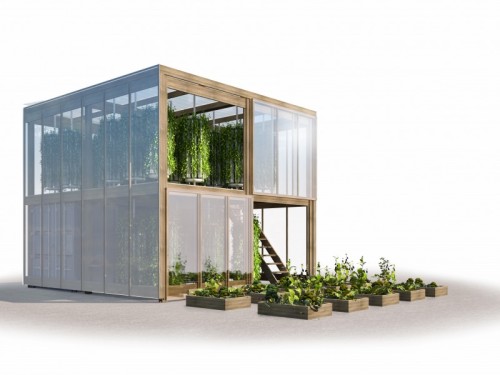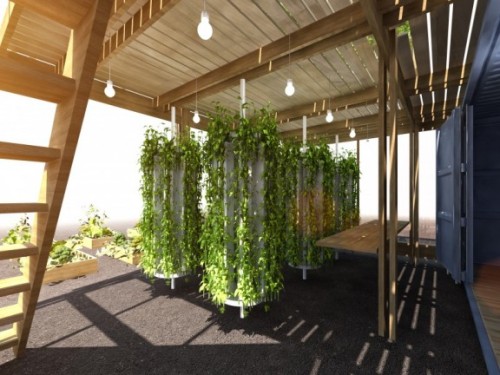agritecture:Want to join the food revolution? Build yourself a flatpack urban farm Forget flatpack
agritecture: Want to join the food revolution? Build yourself a flatpack urban farm Forget flatpack furniture. Also forget traditional agriculture. Coming soon to a city near you – it’s the flatpack farm. At least, that’s the ambition of Mikkel Kjaer and Ronnie Markussen, a pair of young entrepreneurs who run Human Habitat, a Danish “urban design lab”. “We wanted to make urban farming even smarter,” says Markussen over a coffee in central Copenhagen. The duo’s aim, he says, was to design a unit that would increase food security in cities, lower the ecological footprint of food production, create jobs and easily adapt to changes in the urban landscape. What they came up with was the so-called Impact Farm – though it’s much more fun to describe it as a flatpack farm. That’s because it’s built using an assembly-kit of ready-made components that arrive in a saved-from-scrap shipping container. Put them together and you’ve got a two-storey vertical hydroponic (or soil-free) farm, which certainly beats a Billy bookcase. Designed to be self-sufficient in water, heat and electricity, the farm requires a footprint of just 430 sq ft – though once the shipping container has been unpacked and the farm installed, the production area stretches to 538 sq ft. Crops include greens, herbs and fruiting plants.Human Habitat was born when childhood friends Kjaer and Markussen discovered they shared a similar goal. “We wanted to reconnect people to food by giving them a green space that brings nature back into our cities,” says Kjaer. As a student of development economics at Roskilde University, Kjaer had become interested in “small-scale solutions to the most fundamental of problems – providing food”. Markussen, meanwhile, had trained as a carpenter and worked on ambitious projects such Upcycle House, which was constructed using recycled and upcycled building materials. Read more from Collectively -- source link
Tumblr Blog : agritecture.tumblr.com
#solarpunk#urban agriculture#impact farm#food security#sustainability


